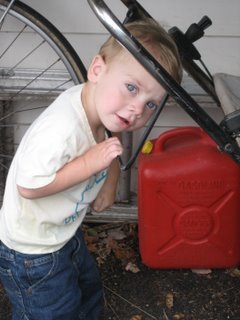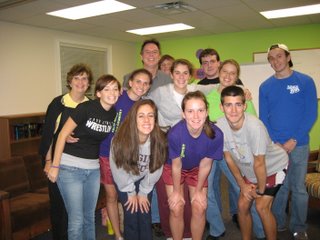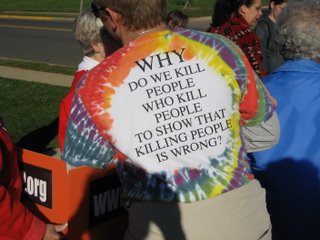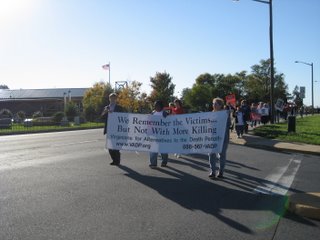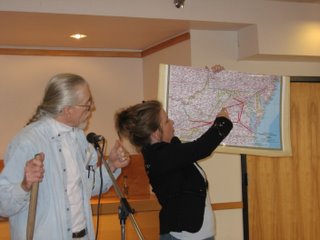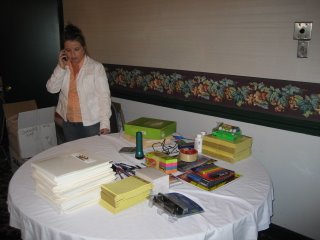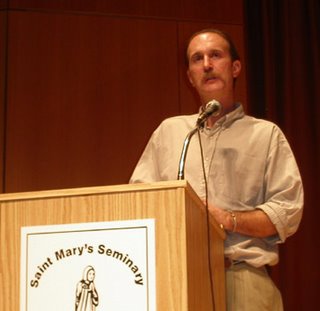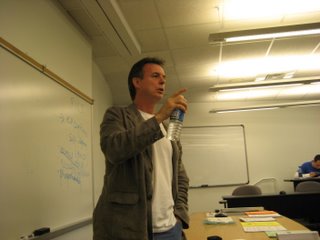
Above: Journey of Hope participant Robert Hoelscher, who has been bringing us regular updates on the progress of the Journey of Hope...From Violence to Healing, talks to law students at the College of William and Mary.
The latest dispatch (actually, three dispatches) from Robert:
On Tuesday, October 24, Tracy Spirko and I visited two criminology classes at University of Mary Washington taught by Dr. Joan Olson (thank you Joan!). About two of every three students signed the petitions asking for a death penalty moratorium in Virginia. The students (even those at the 8 a.m. class) were very attentive and respectful and asked lots of questions. These classes don't offer a huge block of time to talk. And it would be unreasonable to expect anyone to fully comprehend all sides of a topic they may not have given much thought to. So the best measure I can think of regarding our discussion is simply to ask the class if our information was helpful. Most nod their heads and say it was. To me, that's a successful event. Our host Debbie Simpson arranged dinner for me and Tracy with some very nice members of her church. Again, we are so grateful for the hospitality extended to us.
On Monday, October 23, Tracy Spirko (family member of death row prisoner) and I visited a group of law school students at the William & Mary Law School in Williamsburg. This was a real treat for me because these law students were also forming an innocence project to investigate suspected cases of wrongful conviction. I had worked for five years for innocence projects in Louisiana and Texas. And Tracy's husband John has been claiming his innocence for every day of his 24 years on Ohio's death row. On top of that, to my pleasant surprise, Virginia exoneree Beverly Monroe attended. I met Beverly two years ago at the National Innocence Network Conference in Austin, Texas where she participated in a panel discussion that I organized. Bottom line, a grand time was had by all. After this event, Tracy and I continued on to Fredericksburg, where we would be speaking on Tuesday and Wednesday. We were greeted in Fredericksburg by local activist Debbie Simpson, who served as our host for the next two days. I cannot say enough about the kindness and generosity of Journey activists and volunteers who, like Debbie, have been so important in making this adventure possible.
Sunday, October 22 was another caravan day. We checked out of Richmond and headed to Williamsburg and a noon event with Sister Helen at the William and Mary Catholic Campus Ministry. It was a great crowd (over 150). Sister Helen was introduced by William and Mary President Gene R. Nichol. She gave another rousing performance. Then on we went to Norfolk and our last event with Sister Helen at the Church of the Ascension in Virginia Beach. This was our largest audience (over 400) on the Journey. After this event, we gathered in our hospitality room at the hotel for some personal time with Sister Helen. She regaled us with a few "Boudreaux" jokes from Louisiana. It was a hoot. Time flies when you're having fun. Most of us didn't hit the sack until the wee hours of the morning.


